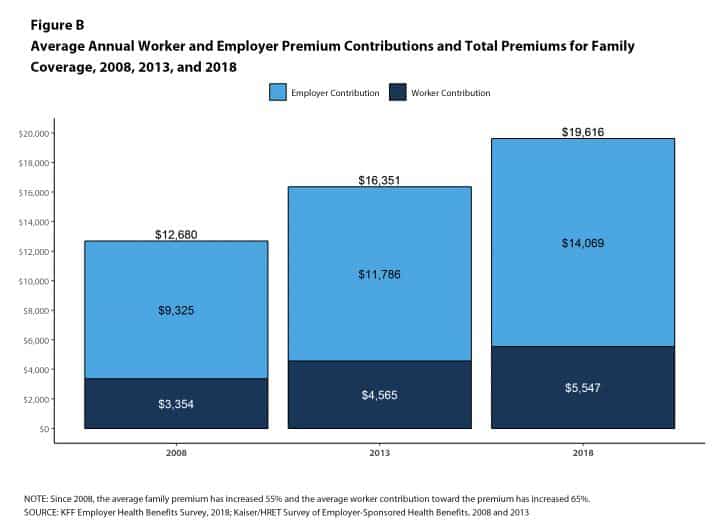Study: Employers Pay Nearly 75 Percent of the Cost of Health Insurance
Chances are you didn’t see the above headline last week. However, it is one takeaway from the 2018 Employer Health Benefits Survey published by the Kaiser Family Foundation. Most articles about the survey focused on the finding that the average cost of employer-provided health insurance reached nearly $20,000 over the past year.
Of course, there is plenty of frustration to go around when it comes to the cost of health care. One interesting fact, however, is that the share of health insurance premiums paid by employers has remained relatively steady for a decade:

Does your company cover nearly three-quarters of the cost of employee health insurance? If so, how is that being communicated to employees? As we head into open enrollment season, employees will focus on how much is coming from their paycheck. Do your employees understand that employer costs are also increasing?
Educating employees about the overall cost of health insurance – not only the employee-paid portion – is critical. Total compensation statements can help. A total compensation statement illustrates how much an employer pays not only for health insurance but for other benefits as well.
Many employers provide both competitive cash compensation and robust benefit offerings. But many of these same employers fall short when it comes to telling their total rewards story. Neglecting total rewards communications can be costly to an employer in terms of employee motivation, engagement, and retention. Simply put, people can’t properly value what they don’t understand. As noted in the 2018 SHRM Employee Benefits Survey: “providing employees with a total rewards statement will show them how much the company is truly investing in them.”
Q1 is a great time to distribute total compensation statements. Contact us to learn more about how we can help you tell your total rewards story.